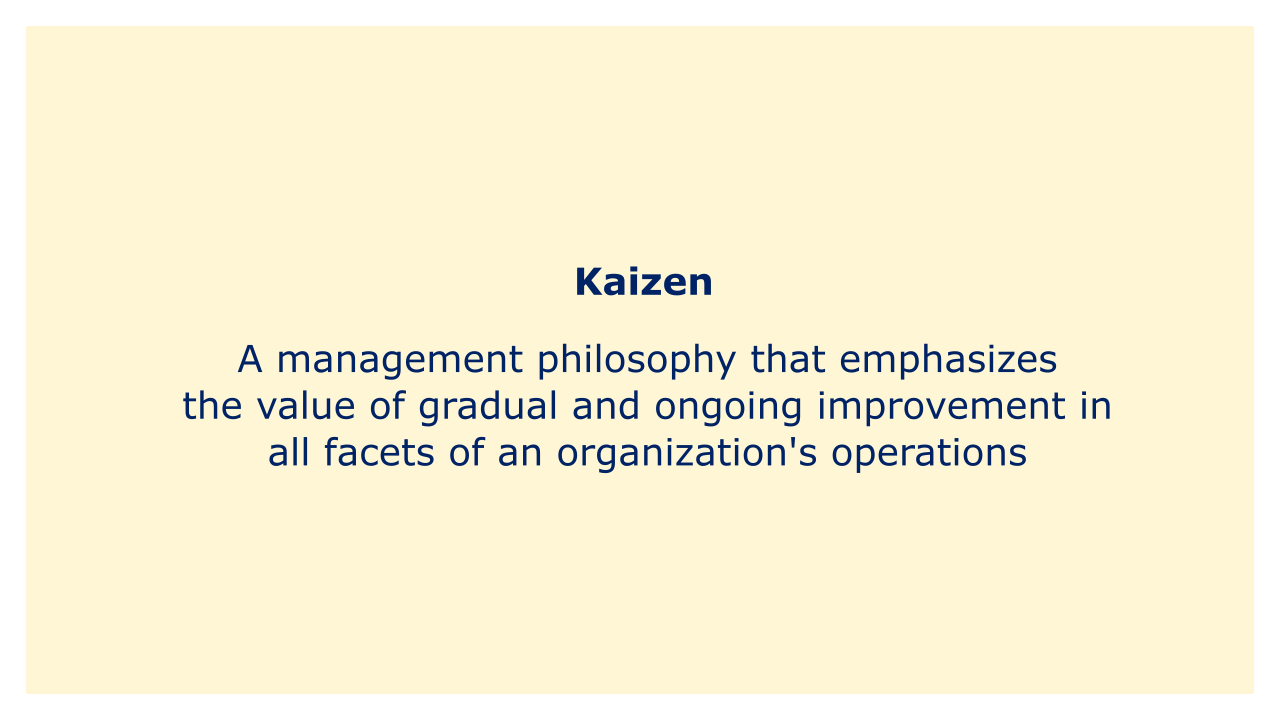 |
| Image: Moneybestpal.com |
Japanese people use the term "kaizen" to describe the idea of continuous improvement. It is a management philosophy that emphasizes the value of gradual and ongoing improvement in all facets of an organization's operations, including its financial performance, in the context of finance.
Kaizen's fundamental tenet is that gradual, little changes can add up to large gains in productivity, quality, and profitability. Through the participation of all employees in the company, from front-line staff to top management, the strategy focuses on the elimination of waste and the optimization of current processes.
Although Kaizen was initially established in the industrial sector, it has now been used in a variety of sectors, including banking. Kaizen concepts in finance can be used in a variety of contexts, including financial reporting, risk management, and investment research. Organizations can improve their financial outcomes and gain a competitive edge by reiterating their efforts to increase the efficiency and efficacy of these procedures.
The emphasis on little adjustments, according to kaizen detractors, can occasionally result in a lack of innovation and a failure to tackle underlying issues. However, placing so much importance on employee input and creating agreement can occasionally lead to decision-making that is delayed and reluctance to change.
Kaizen, as a whole, stands for a significant method of controlling financial performance and enhancing organizational effectiveness. Organizations can improve their financial performance and react to shifting market conditions in the long run by putting a constant improvement focus on their work.
